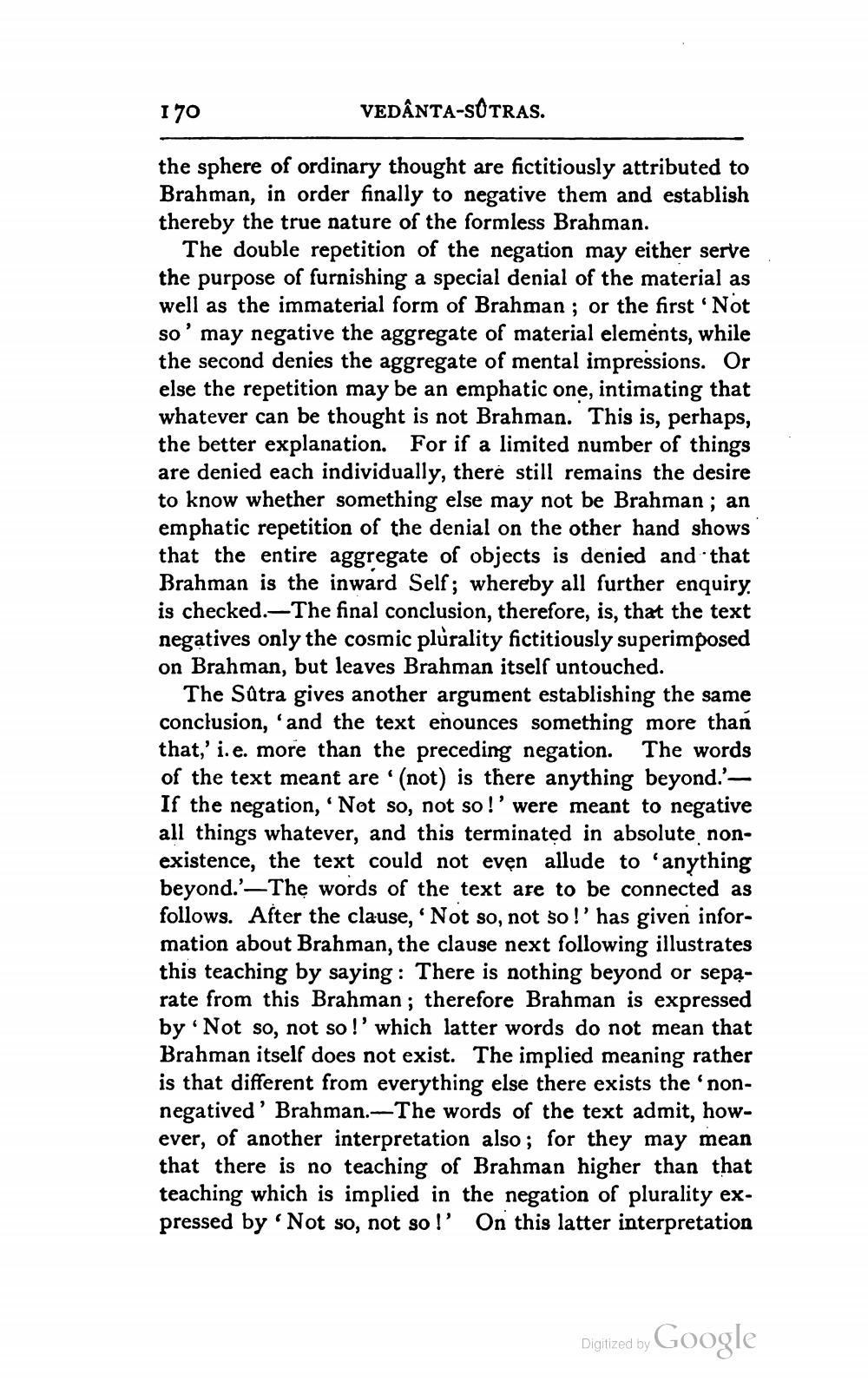________________
170
VEDÂNTA-SOTRAS.
the sphere of ordinary thought are fictitiously attributed to Brahman, in order finally to negative them and establish thereby the true nature of the formless Brahman.
The double repetition of the negation may either serve the purpose of furnishing a special denial of the material as well as the immaterial form of Brahman; or the first 'Not so'may negative the aggregate of material elements, while the second denies the aggregate of mental impressions. Or else the repetition may be an emphatic one, intimating that whatever can be thought is not Brahman. This is, perhaps, the better explanation. For if a limited number of things are denied each individually, there still remains the desire to know whether something else may not be Brahman; an emphatic repetition of the denial on the other hand shows that the entire aggregate of objects is denied and that Brahman is the inward Self; whereby all further enquiry. is checked.—The final conclusion, therefore, is, that the text negatives only the cosmic plurality fictitiously superimposed on Brahman, but leaves Brahman itself untouched.
The Satra gives another argument establishing the same conclusion, and the text enounces something more than that,' i.e. more than the preceding negation. The words of the text meant are '(not) is there anything beyond.'— If the negation, Not so, not so !' were meant to negative all things whatever, and this terminated in absolute nonexistence, the text could not even allude to "anything beyond.'— The words of the text are to be connected as follows. After the clause, 'Not so, not so!' has given information about Brahman, the clause next following illustrates this teaching by saying: There is nothing beyond or separate from this Brahman; therefore Brahman is expressed by .Not so, not so !' which latter words do not mean that Brahman itself does not exist. The implied meaning rather is that different from everything else there exists the 'nonnegatived' Brahman.--The words of the text admit, however, of another interpretation also; for they may mean that there is no teaching of Brahman higher than that teaching which is implied in the negation of plurality expressed by Not so, not so!' On this latter interpretation
Digitized by Google




